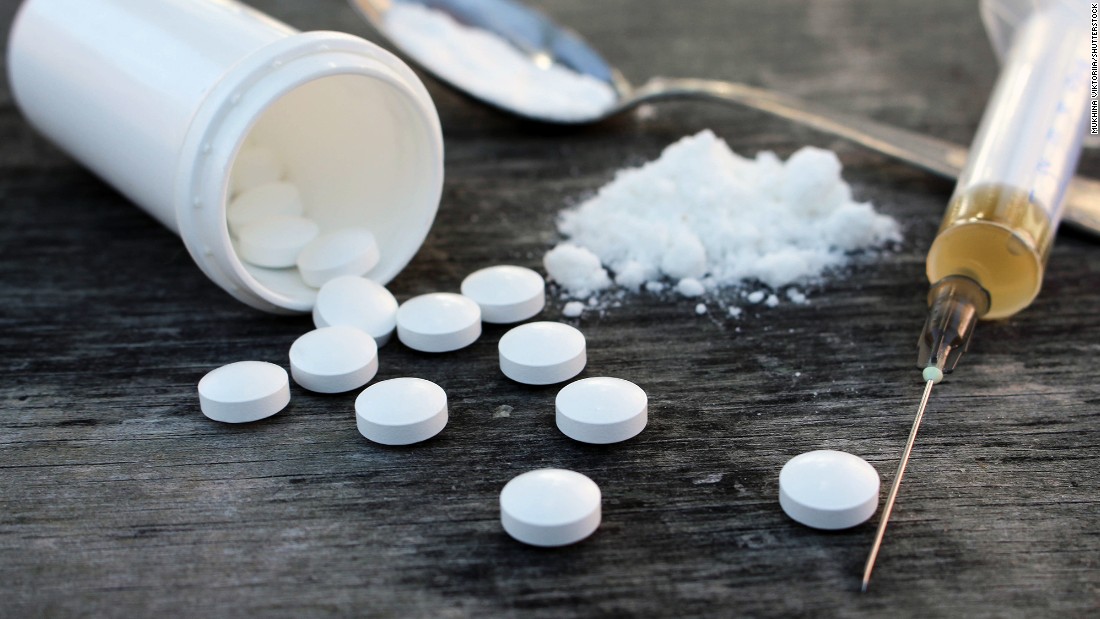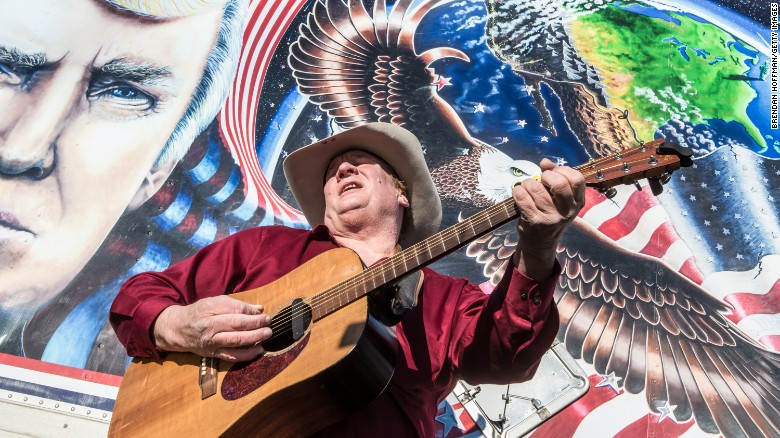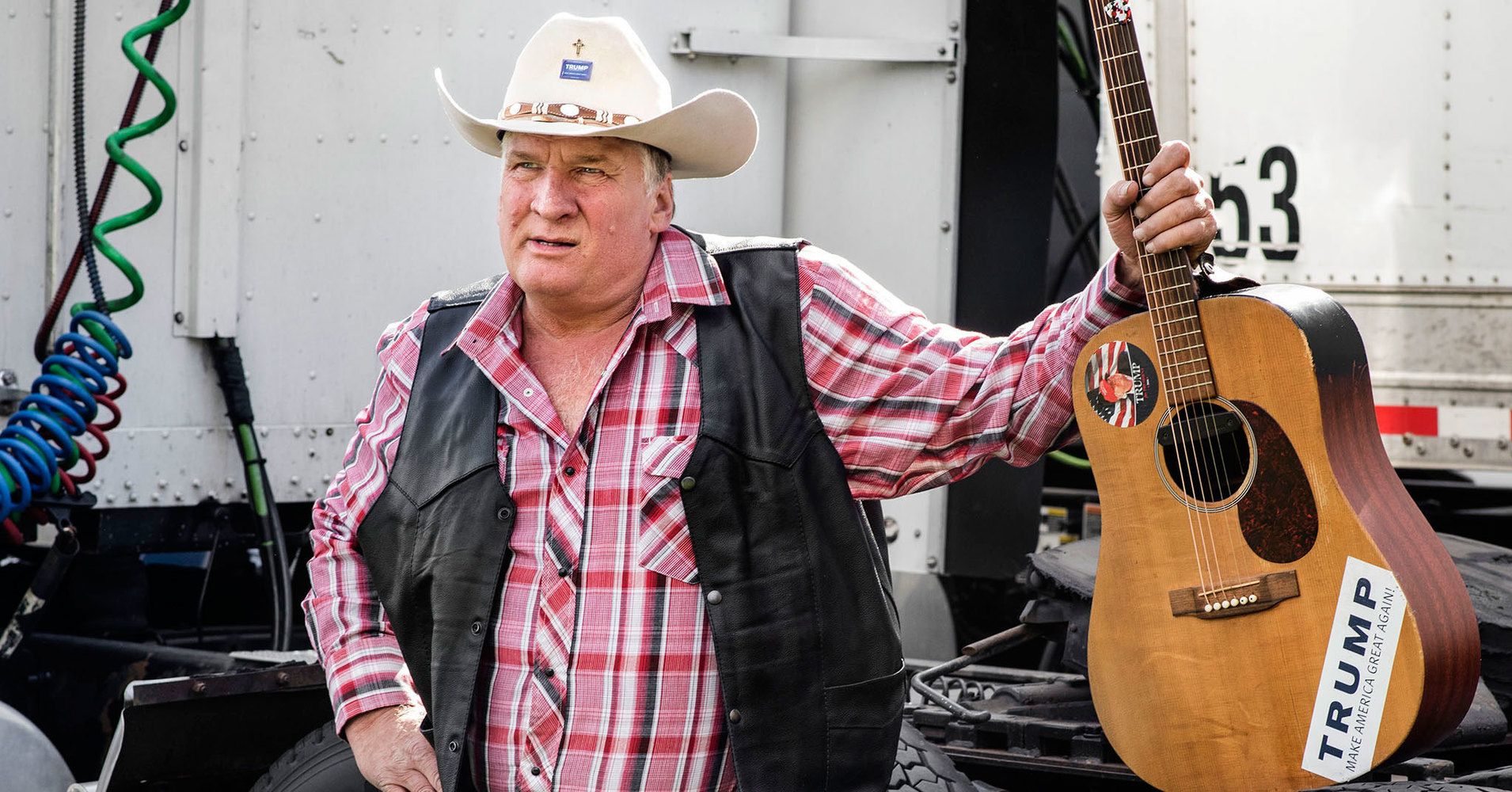During the 2016 Presidential campaign, Kraig Moss followed the campaign trail with a guitar and a cowboy hat. The amateur country singer attended 45 Trump rallies across the country, where he sang pro-Trump tunes to a rapt audience. He and his sticker-emblazoned guitar quickly earned a nickname, “The Trump Troubadour”, and a reputation as one of Donald Trump’s most staunch supporters among the working class.
But now, the “voice of unheard America” is singing a much different tune. This summer, Kraig Moss will publish his book, Trump Troubadour No More, which tells the story of how he went “from Trump apostle to adversary”.
The reason?
In 2014, Moss’ 24 year old son Rob was found dead in his bed from a heroin overdose. Now, more than a year into Trump’s presidency, Moss feels personally betrayed by Trump’s inability to follow through on his promises to end the opioid epidemic currently sweeping the nation.

The Rise of the Opioid Crisis
Between 2016 and 2017, opioid overdoses have increased by 30% in the US. This number is much higher in places like Pennsylvania, where overdoses increased by 81%, or Wisconsin, which saw a staggering 109% increase. Not every overdose is fatal, but in 2016, there were more than 63,600 overdose deaths in the United States.
According to Anne Schuchat, the Principal Duty Director of the CDC, these are “the highest overdose death rates ever recorded in the United States.”
Curbing the use of opioids requires walking a very fine line. Already, doctors have begun to reduce their their prescriptions of OxyContin and other widely abused opiate painkillers in hopes of restricting access. Already, this method shows hopeful signs of effect – in Massachusetts, opioid deaths fell almost 8 percent in 2017 – but also runs the risk of pushing addicts away from prescription drugs and toward heroin. Fentanyl, which is increasingly being laced in heroin, was found to be present in 83% of opiate deaths last year.

A Personal Betrayal
Rob Moss’ death struck deeply for his father, and actually served as the impetus for his support of Trump.
At an early campaign rally in Iowa, Trump singled Moss out from the crowd while speaking about drug abuse and the opioid epidemic. He told Rob Moss’ story and spoke personally to Kraig.
“The biggest thing we can do in honor of your son,” said Trump to Moss, “We have to be able to stop it.”
Moss, overcome with emotion, was even personally comforted by the then presidential candidate, who came out from behind the podium to the front of the stage. As Moss recalled in an interview with Financial Times, Trump said, “I want to let you know that I’m sorry for your loss. I know it must be hard.”
Trump told him that he was a good father, and that his son was proud of him. “I’ll bet he was a great boy,” Trump said.
Throughout his campaign, he vowed numerous times to help people dealing with addiction, and to increase services for their assistance. That’s why his inaction feels so much like betrayal to Moss.

A Public Health Emergency Left Unattended
On October 26, 2017, the Department of Health and Human Services declared the opioid crisis a “Public Health Emergency”, citing the fact that 91 Americans die each day from opioid overdoses, and unveiling a strategic plan to target the availability of drugs and assist those who are addicted. This announcement was widely applauded by both the left and the right, but in the months since it has remained just that: an announcement.
At the end of January, a group of Democratic senators wrote a letter to the Government Accountability Office, pleading with them to investigate the Trump administration’s inaction in responding to the drug epidemic.
The senators wrote, “Given the severity of the crisis, we have grown increasingly concerned by reports that the President has done little to make use of his public health emergency declaration, leaving state and local communities without the resources they need to fight the opioid epidemic.”
It’s a concern shared by many, especially as early numbers indicate that opioid-related deaths are still on the rise.
People like Kraig Moss feel those numbers more personally than most, knowing that the pain of losing a loved one to an overdose is still being felt by parents, friends, and family members all over the country. Moss put his faith in Trump; he sold his trucks and his construction equipment to follow his campaign trail and support a man he believed in, a man he thought would help.
“I did a lot to promote his candidacy,” said Moss to CNN. “Now, I wish I had never sold my equipment.”

